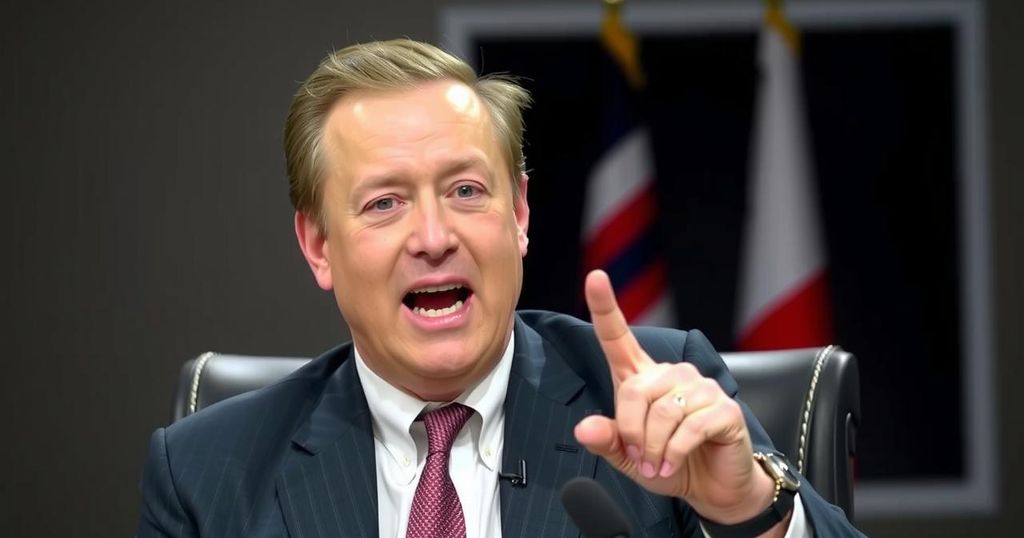Elon Musk Amplifies AfD’s Message in Controversial Livestream Ahead of Elections

Elon Musk livestreamed a conversation with Alice Weidel, leader of Germany’s far-right AfD, endorsing her party ahead of the national elections. The discussion raised significant concerns about Musk’s influence on German politics, given the AfD’s controversial history and growing popularity. European regulators are monitoring potential violations of the Digital Services Act due to Musk’s actions.
On January 9, 2025, Elon Musk, CEO of Tesla and SpaceX, utilized his social media platform, X, to conduct a livestream with Alice Weidel, the leader of Germany’s far-right party, the Alternative for Germany (AfD). During the conversation, Musk endorsed Weidel and encouraged viewers to support her party ahead of the national election scheduled for February 23, 2025. The livestream attracted significant attention, with over 200,000 accounts tuned in.
Musk and Weidel discussed various topics, including criticisms of high taxes, immigration policy, and Germany’s energy strategy, emphasizing the need for nuclear power. Weidel sought to distance the AfD from associations with Nazi ideology by highlighting free speech as a central tenet of the party and asserting that Adolf Hitler was not a representative of conservative or libertarian values.
The AfD has faced scrutiny, being monitored by Germany’s domestic intelligence agency for potential extremism, while mainstream parties have avoided collaboration with them. However, the party has gained traction. Recent polls indicate that the AfD has positioned itself as the second most popular political party in Germany in the lead-up to the elections. The rise of the AfD reflects a broader trend of increasing support for far-right parties across Europe.
There are concerns regarding Musk’s influence in European politics, especially given his previous expressions of support for other controversial figures and policies. The European Commission has raised alarms about potential violations of their Digital Services Act, which aims to protect users from harmful content and misinformation. Although Musk presented Weidel as a leading candidate for Germany’s chancellorship, current polling indicates this is inaccurate, as the Christian Democrats maintain a substantial lead.
Elon Musk’s engagement with Alice Weidel of the AfD comes against a backdrop of rising populism and far-right sentiments in Europe. Founded in 2013, the AfD initially focused on economic issues but gained notoriety for its staunch anti-immigration stance, particularly during the 2015 refugee crisis. As mainstream parties have increasingly marginalised the AfD, its popularity has surged amidst dissatisfaction with the current government led by Chancellor Olaf Scholz. Musk’s actions are concerning to many, as they suggest an attempt to influence German politics from abroad, raising questions regarding the responsibilities of social media platforms in moderating political content.
In conclusion, Elon Musk’s recent livestream with Alice Weidel demonstrates a significant intersection of technology, social media, and foreign politics. By endorsing a far-right political leader ahead of crucial elections, Musk has ignited discussions about the ethical implications of such influence. As the AfD continues to gain public support amidst a shifting political landscape, the need for responsible practices in social media becomes increasingly pressing. The implications of Musk’s actions may reverberate not only in Germany but throughout Europe as far-right ideologies gain ground.
Original Source: apnews.com




